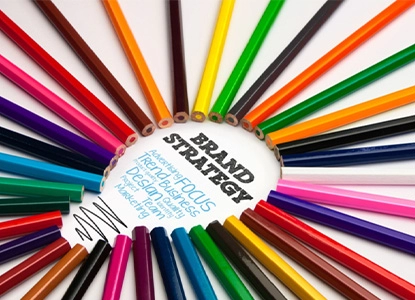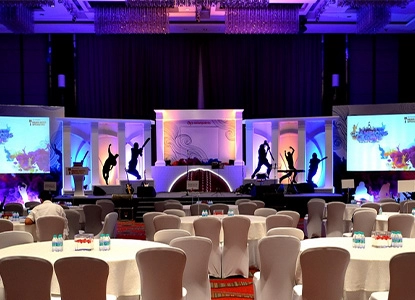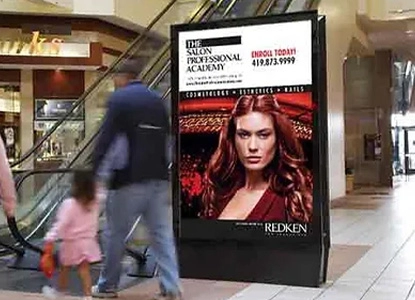How To Advertise BTL
BTL advertising is characterized by direct engagement with the target audience. Unlike ATL, which casts a broad net, BTL
Effective event and exhibition advertising is essential for attracting attendees, enhancing brand visibility, and ensuring the overall success of the event. For Align Solution, a company specializing in diverse advertising strategies, leveraging a well-rounded approach for promoting events and exhibitions can significantly boost engagement and participation. This guide provides a comprehensive strategy for advertising events and exhibitions, focusing on key methods and best practices to maximize impact.
1. Define Objectives and Target Audience
Before diving into advertising, clearly outline the event's objectives and identify the target audience. Understanding the goals—whether to generate leads, increase brand awareness, or launch a new product—will shape the advertising strategy. Segmenting the audience based on demographics, interests, and behavior helps in crafting tailored messages that resonate with them.
2. Develop a Compelling Event Brand
Create a strong, memorable brand for the event that reflects its theme and purpose. This includes designing a unique logo, developing a catchy tagline, and ensuring a cohesive visual identity across all advertising materials. Consistent branding helps in establishing recognition and generating interest.
3. Utilize Digital Advertising
Digital advertising is crucial for reaching a wide audience efficiently. Consider the following digital channels:
Social Media Advertising: Platforms like Facebook, Instagram, LinkedIn, and Twitter allow targeted advertising based on user interests, demographics, and behavior. Create engaging ads with visually appealing graphics and clear calls-to-action (CTAs). Use paid promotions to reach a larger audience and retarget users who have shown interest.
Search Engine Marketing (SEM): Leverage Google Ads to capture search traffic related to event topics. Use keywords that potential attendees might use to search for events in your industry. Bid on relevant keywords and create compelling ad copy to drive traffic to your event registration page.
Email Marketing: Build and segment an email list to send personalized invitations and updates. Craft compelling subject lines and messages that highlight key benefits of attending. Include clear CTAs and easy registration options. Follow up with reminder emails as the event date approaches.
Content Marketing: Publish blog posts, articles, and press releases related to the event. Share insights, speaker interviews, and behind-the-scenes content to generate interest and provide value. Optimize content for SEO to attract organic traffic.
4. Leverage Traditional Advertising
While digital advertising is crucial, traditional methods can still play a significant role. Consider the following:
Print Media: Advertise in industry magazines, newspapers, and brochures. Design eye-catching ads with event details and a clear call-to-action. Distribute printed materials at relevant locations such as industry hubs and partner businesses.
Outdoor Advertising: Use billboards, transit ads, and posters in high-traffic areas. Ensure that the design is attention-grabbing and includes essential event details. Outdoor advertising is effective for reaching a broad audience and creating local awareness.
Direct Mail: Send personalized invitations and promotional materials to a targeted list. Include event details, benefits of attending, and registration information. Direct mail can be particularly effective for high-value events or VIP invites.
5. Engage with Influencers and Partners
Collaborate with industry influencers and partners to extend your reach. Influencers can promote the event to their followers, while partners can help amplify your message through their channels. Provide them with event details, promotional materials, and incentives to encourage their participation.
6. Utilize Event Listings and Aggregators
List the event on popular event directories and aggregators such as Eventbrite, Meetup, and local event calendars. Ensure that the listing includes a compelling description, key details, and a link to the registration page. Listings on these platforms can drive additional traffic and registrations.
7. Host Pre-Event Webinars or Live Streams
Generate excitement and provide a preview of the event by hosting pre-event webinars or live streams. Feature key speakers, share event highlights, and engage with potential attendees in real-time. Promote these sessions through social media, email marketing, and your website.
8. Optimize the Event Website and Registration Process
Ensure that the event website is user-friendly, visually appealing, and optimized for conversions. Include all relevant event details, such as date, time, location, and agenda. Simplify the registration process with an easy-to-use form and multiple payment options if applicable.
9. Monitor and Analyze Performance
Track the performance of your advertising campaigns using analytics tools. Monitor metrics such as website traffic, click-through rates, conversion rates, and social media engagement. Use this data to assess the effectiveness of your strategies and make necessary adjustments.
10. Post-Event Follow-Up
After the event, engage with attendees through follow-up emails, surveys, and social media posts. Share highlights, photos, and videos from the event to maintain momentum and build long-term relationships. Gather feedback to improve future events and demonstrate appreciation for participants.
Conclusion
Effective event and exhibition advertising requires a multi-faceted approach that combines digital and traditional methods. By defining clear objectives, developing a strong event brand, and utilizing various advertising channels, Align Solution can successfully promote its events and exhibitions. Engaging with influencers, leveraging content marketing, and optimizing the registration process are key components of a successful advertising strategy. Continuous monitoring and post-event follow-up will ensure that the event achieves its goals and leaves a lasting impression on attendees.

BTL advertising is characterized by direct engagement with the target audience. Unlike ATL, which casts a broad net, BTL

In the contemporary business landscape, digital marketing is not just an option but a necessity for brands aiming to thrive.

Effective event and exhibition advertising is essential for attracting attendees, enhancing brand visibility, and ensuring the overall success

In today’s competitive market, establishing a robust brand presence is essential for any business aiming for long-term success.

Above-the-Line (ATL) advertising is a strategy aimed at reaching a broad audience through mass media channels.